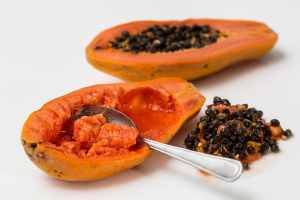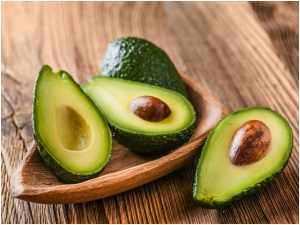Don’t you ever wonder where does the food we eat go? How our body uses it? Who does the segregations? Well, if all these questions are occupied on your mind, read our blog! We will give you a complete guide on what is the function of digestive enzymes and how the chemical reactions take place in our body!
Table of Contents
What are digestive enzymes?
Our body makes these enzymes in the digestive system that includes the mouth, small intestine, and stomach. The pancreas has the largest share of these enzymes.
Also, these enzymes help the body in breaking down proteins, fats, and carbohydrates. In order to have optimal health, your body needs to absorb these nutrients. Therefore, without digestive enzymes, the nutrients in our food will go to waste.
Besides, lack of these enzymes will lead to poor health, such as malnutrition. This is called exocrine pancreatic insufficiency (EPI). If this happens, replacement of the digestive enzymes might be a choice.
Doctors need to prescribe some of the enzyme supplements that you can have to supply enzymes into your body. However, there many over-the-counter medicines that people can consume (OTC).
The role of digestive enzymes in the human digestive system
They take the place of the natural enzymes and helps in breaking down the nutrients. Once the food breaks down, all the nutrients are absorbed in the body by the wall of the small intestine. After that, it is distributed by the bloodstream.
Moreover, if someone is taking supplements, then they should have them just before they eat. In this way, they will do a better job once the food reaches the small intestine and stomach.
What is the function of digestive enzymes?
The primary function of enzymes is to absorb and digest the food that we eat. They break down complex molecules such as fats, carbs, and proteins (macronutrients) into smaller molecules. This helps the nutrients to be absorbed by the bloodstream and distribute in the body.
Moreover, these enzymes are released as soon as we taste the food or smell it. Also, some foods have digestive enzymes that help to break down the nutrients even faster.
Furthermore, lack of digestive enzymes can cause many health issues, mainly those that affect the pancreas since it secretes many vital enzymes.
List of digestive enzymes and their functions
The main types of digestive enzymes include Amylase, Maltase, Lactase, Lipase, Sucrase, and Protease. Check out the list below to find out the functions of these enzymes:
What is the function of digestive enzymes Amylase?
It breaks down the starches or carbs into sugar particles. The pancreas and the salivary glands secret this enzyme.
Moreover, the amount of Amylase levels in our blood is used to diagnose different pancreas or digestive diseases.
Furthermore, a high level of this enzyme might indicate an injury or blockage in the pancreas, acute pancreatitis, pancreatic cancer, or a sudden inflammation in the pancreas.
Low levels might be indicating chronic pancreatitis, diarrhea, inflammation in the pancreas, and liver diseases.
What is the function of digestive enzymes Maltase?
Our small intestine secretes this enzyme, and it helps to break down malt sugar (maltose) into simple sugar (glucose), which our body uses for energy.
Moreover, during the process of digestion, starch is partly converted into maltose with the help of Amylases. After this, Maltase transforms maltose into glucose. Either it is instantly used by our body or stored in our liver as glycogen for any future usage.
What is the function of digestive enzymes Lactase?
Lactase which is also known as lactase-phlorizin hydrolase helps to break down lactose, a type of sugar mainly found in dairy foods. It breaks them into simple sugars such as galactose and glucose.
Moreover, enterocytes, a type of cell present in the intestine, produce Lactase. However, if it is not absorbed, it undergoes fermentation by microbes and may lead to acidic and stomach upset.
What is the function of digestive enzymes Lipase?
With the help of liver bile, it breaks down fats into glycerol and fatty acids. It produces mainly in the pancreas and a small amount in the stomach and mouth.
Hence, if someone lacks Lipase, then they will be deficient in fat-soluble vitamins like A, E, K, and D.
What is the function of digestive enzymes Sucrase?
The small intestine produces Sucrase. Here it helps in breaking down sucrose into glucose and fructose. Our body can absorb these as they are simpler sugars.
Moreover, it is found in the intestinal villi, which are tiny hair-like projections and transport nutrients in the bloodstream.
What is the function of digestive enzymes Protease?
It is also known as proteolytic enzymes, proteinases, or peptidases, which help break down protein into amino acids.
Moreover, it helps to keep out organisms such as yeast, protozoa, and bacteria out from the intestines. Lack of this will lead to toxicity or allergies in our intestines.
Proteases are formed in the pancreas and stomach. The vital ones are:
Pepsin
It is produced in the stomach and helps in breaking down proteins into amino acids and peptides. Either it is absorbed or further broken down in our small intestine.
Trypsin
They are formed when our pancreas secretes enzymes, and the enzymes activate them in our small intestine.
Furthermore, they activate other pancreatic enzymes, like chymotrypsin and carboxypeptidase, to help to break down the peptides.
Chymotrypsin
Chymotrypsin enzymes help in breaking down peptides into amino acids, which our intestinal walls will absorb.
Carboxypeptidase A
They are produced in the pancreas, and it helps to split peptides into singular amino acids.
Carboxypeptidase B
They are produced in the pancreas and helps in breaking down basic amino acids.
What is the role of acid in our stomach?
Hydrochloric acid (HCL) is a type of digestive fluid that is formed by our stomach at the time of digestion. It helps to destroy harmful germs that are present in our food particles.
Role of HCL:
It does have a crucial role during the process of digestion. Some of the essential features are listed below:
- It helps to make a medium for the gastric juice acidic so that all the enzymes can digest the protein and kill the microbes present in them.
- This acid helps to stimulate the pepsinogen enzyme required to digest the proteins.
- Hydrochloric acid found in our stomach helps digestion by decomposing complex large food particles into simpler particles.
- The acid also helps to break down, absorb, and digest the nutrients like protein.
Foods with digestive enzymes and their functions
Here is a list that will tell you each of the foods that have digestive enzymes present in them and their respective functions. Check out the following:
Pineapple
The enzyme they have is proteases (bromelain).
Function
It helps to digest proteins into building block which includes amino acids. Moreover, this supports the absorption of proteins and digestion. It is also anti-inflammatory.
Bromelain also can be bought in powdered or crushed form, which helps to tenderize hard meats. Besides, it is widely available as a supplement that aids people who cannot digest proteins.
A few years ago, a study was done on 20 people with pancreatic insufficiency; it is a condition where the pancreas cannot produce enough enzymes.
Once they started taking bromelain and enzyme supplements, their digestive system was better and faster than just taking the enzyme supplement.
Papaya
The enzyme they have is proteases (papain).
Function
It helps to digest protein, and it is also a common meat tenderizer. Besides, a lot of research has shown that having papaya helps ease digestive symptoms of Irritable bowel syndrome (IBS), like bloating and constipation.
Moreover, it is best to eat papayas when they are uncooked and ripe. It causes heat exposure destroys the digestive enzymes.
Also, semi-ripe and unripe papayas are unsafe for pregnant women because they might stimulate contractions.
Kiwi
The enzyme they have is proteases (actinidain).
Function
Since the food is rich in fiber, it helps the digestive process and transports the foods faster. It is also used to tenderize hard meats such as beef and also soy protein, and gluten.
Moreover, it has other enzymes which ripen kiwi. Also, scientists believe that actinidain is the reason why kiwi helps indigestion.
Kiwi also helps to relieve constipation and decreases bloating.
Mango
The enzyme they have is amylases.
Function
It helps to break down the carbs from starches and turn them into simple sugar such as maltose and glucose.
Moreover, it works better if the mango is ripe. Amylase becomes more active when mango is ripe. Also, this is the reason why mangoes are sweeter when they start to grow.
Bananas
The enzyme they have is glucosidases and amylases.
Function
Both glucosidases and amylases help in breaking down complex carbohydrates into sugars. Like mangoes, it is best to have a ripe yellow banana instead of a green banana.
Furthermore, bananas are rich in dietary fiber that helps the digestive system. 120 grams of banana has 3.2 grams of dietary fiber.
Raw Honey
The enzyme they have is invertases, proteases, diastases, and amylases.
Function
- Diastases help to break down starch into maltose.
- Amylases break down the starches into sugars such as maltose and glucose.
- Proteases break down the proteins into amino acids.
- Invertases help in breaking down the sucrose (a sugar type) into fructose and glucose.
Whenever you buy honey, make sure it is raw as it has the most digestive benefits. Furthermore, processed honey is most heated, and heat destroys the enzymes.
Avocado
The enzyme they have is lipases.
Function
It helps to metabolize and digest fats. They digest the fat particles into smaller particles like glycerol and fatty acids.
Even though Lipase is made in the pancreas, taking an additional supplement will further help digestion, mainly after a hefty meal.
Kefir
The enzyme they have is lipases, proteases, and Lactase.
Function
Lactase helps to digest and absorb the fermented milk. Also, people with lactose intolerance can even tolerate it.
It is fermented milk where grains (kefir) are added to the milk. Kefir is a culture of acetic acid bacteria, lactic acid bacteria, and yeast that looks like a cauliflower.
During fermentation, the microbes convert the natural sugar in milk into carbon dioxide and organic acids. This process adds enzymes, nutrients, and different beneficial compounds.
Sauerkraut
The enzyme they have is lipases and proteases.
Function
It is a fermented cabbage that has a very distinct bitter taste. Most fermented foods create enzymes and probiotics during the process of fermentation. These beneficial bacteria help to support digestive health.
Also, many studies have shown that the consumption of probiotics also helps to ease digestive symptoms like constipation, stomach pain, bloating, gas, and diarrhea.
Moreover, to get the maximum benefits to eating raw sauerkraut and not cooked sauerkraut as high temperature destroys the enzymes.
Kimchi
The enzyme they have is lipases, amylases, and proteases.
Function
Kimchi is made from fermented vegetables that have enzymes and nutrients like kefir and sauerkraut.
Moreover, kimchi has bacteria of Bacillus species that produce those enzymes. These help to digest fats, carbs, and proteins.
Miso
The enzyme they have is amylases, lactases, lipases, and proteases.
Function
Miso is a fermented soy paste. Koji (fungus) and salt are used in fermented soybeans. Hence, miso has a powerful combination of enzymes. They all help in breaking down lactose in fats, proteins, carbohydrates, and dairy products.
Moreover, miso also helps to reduce digestive issues like irritable bowel disease (IBD). Miso helps to improve their nutritional value by decreasing their anti-nutrient value. Also, anti-nutrients are found in foods which might hamper the absorption of foods in the digestive system.
Ginger
The enzyme they have is a protease (zingibain).
Function
They help to break down protein into building blocks. Also, gingers help to ease vomiting and nausea.
However, like other proteases, zingibain does not tenderize hard meats since its shelf life is short.
Food sitting in the stomach for a long time causes indigestion. A study has shown that adults with indigestion issues have consumed ginger for two weeks, and their digestive health improves immensely.
Final Thoughts
Now you know what is the function of digestive enzymes and how crucial they are for your health. Overall they help the body absorb nutrients. Moreover, without them, some foods will lead to symptoms such as nutritional deficiencies and food intolerances. So, if you show any symptoms talk to your doctor immediately.






Wow, fantastic blog layout! How long have you been blogging for?
you make blogging look easy. The overall look of your site is
great, as well as the content!
My developer is trying to convince me to move to .net from PHP.
I have always disliked the idea because of the expenses.
But he’s tryiong none the less. I’ve been using WordPress on various websites for
about a year and am worried about switching to another
platform. I have heard fantastic things about blogengine.net.
Is there a way I can import all my wordpress content into it?
Any kind of help would be greatly appreciated!
This is a topic which is close to my heart… Cheers!
Where are your contact details though?
It’s very simple to find out any topic on web as compared to books, as I found this piece of writing at this
web page.
I’m now not certain the place you’re getting your information, but great topic.
I needs to spend some time learning much more or working
out more. Thanks for magnificent information I was looking for this info for my mission.
Hello, i think that i saw you visited my web site thus i came
to “return the favor”.I am trying to find things to improve my site!I
suppose its ok to use a few of your ideas!!
Awesome! Its in fact remarkable paragraph, I have got much clear idea regarding from this post.
Your means of explaining everything in this post is in fact pleasant,
all be able to easily be aware of it, Thanks a lot.
What’s up all, here every person is sharing these kinds of familiarity,
therefore it’s nice to read this website, and I used to pay a quick visit this weblog all
the time.
Hi my loved one! I want to say that this article
is awesome, nice written and come with almost all important infos.
I would like to peer more posts like this .
Because the admin of this web page is working, no uncertainty very quickly it will be
renowned, due to its feature contents.
I could not resist commenting. Perfectly written!
Excellent web site. Lots of useful information here.
I’m sending it to several friends ans also sharing in delicious.
And certainly, thanks on your sweat!
This post is priceless. Where can I find out more?
Admiring the time and energy you put into your website and detailed information you provide.
It’s great to come across a blog every once in a while that isn’t the same unwanted rehashed material.
Great read! I’ve saved your site and I’m adding
your RSS feeds to my Google account.
It’s fantastic that you are getting thoughts from this post as well as from our discussion made at this place.
This is very interesting, You are a very skilled blogger.
I have joined your rss feed and look forward to seeking more of your great post.
Also, I have shared your site in my social networks!
Today, I went to the beach front with my kids. I found a sea
shell and gave it to my 4 year old daughter and said “You can hear the ocean if you put this to your ear.” She placed the shell to
her ear and screamed. There was a hermit crab inside and
it pinched her ear. She never wants to go back!
LoL I know this is entirely off topic but I had to tell someone!
you’re truly a excellent webmaster. The web
site loading velocity is incredible. It kind of feels that you’re doing any
unique trick. Also, The contents are masterpiece. you have performed
a wonderful task on this topic!
What i do not realize is in fact how you are not really much more smartly-preferred than you might be right
now. You’re so intelligent. You understand therefore considerably in relation to this
subject, made me individually consider it from a lot of varied
angles. Its like women and men are not interested except it is something to accomplish with Girl gaga!
Your personal stuffs nice. Always deal with it up!